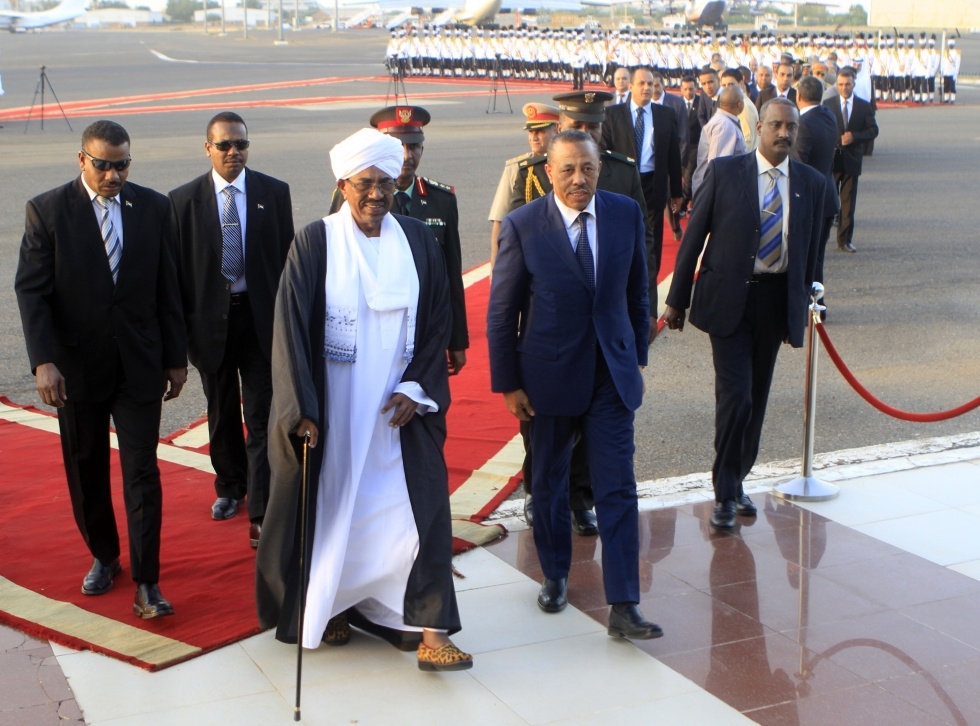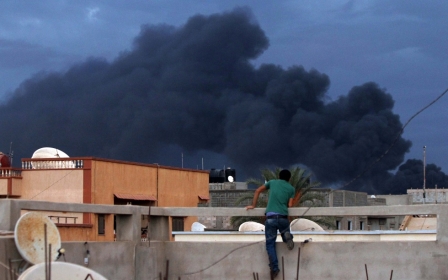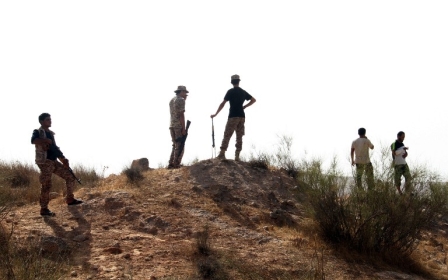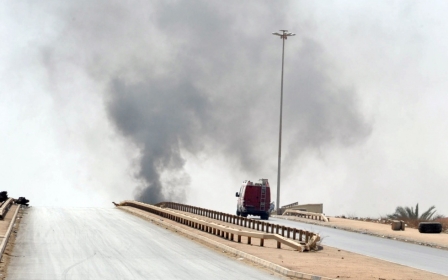Libya PM accepts Sudan plan for peace talks

Sudan said on Tuesday that Libya's Tobruk-based premier has accepted its proposal to bring together different groups in his strife-torn North African nation for talks on ending the conflict.
Mounting unrest across Libya has virtually confined the government to the eastern city of Tobruk, and last month it accused Sudan of arming "terror" groups on its territory.
Libyan Prime Minister Abdullah al-Thani "accepted the plan presented by President (Omar) al-Bashir to bring different Libyan groups together, and we have a clear plan," said Sudanese Foreign Minister Ali Karti.
Speaking to reporters, Karti gave no further details of the plan, only saying it would be discussed with ministers at the next neighbouring countries of Libya meeting in the Sudanese capital.
His remarks came after the Libyan premier, who was in Khartoum for a three-day visit, met with Bashir and other senior Sudanese officials.
In September, Thani's government said Sudan was arming "terror" groups after an arms-laden Sudanese plane touched down at an airbase in southern Libya, allegedly bound for a military airbase in Tripoli held by militias.
Sudan denied the allegations, and Karti said on Tuesday that Khartoum's "communications with different Libyan groups" would come only as part of their plan for talks about Libya.
Libyan Foreign Minister Mohamed al-Dairi struck a conciliatory stance after the meeting, saying of the allegations Khartoum was arming groups in Libya that his government wanted "to close this page".
He said Libya and Sudan had a "relationship of military cooperation, like the one we have with Egypt, Jordan, Turkey and the Emirates, and Sudan is helping us in capacity building and training Libyan army officers".
UN 'seriously concerned' over unabated fighting
Meanwhile, the UN envoy to Libya expressed serious concern Tuesday about violence in the country, calling again for a ceasefire as a car exploded outside a police station in the eastern city of Benghazi.
Bernardino Leon, at a press conference in the capital, said the "serious concern today is the situation on the ground in Benghazi and in Jebel Nefoussa, where the ceasefire was not respected."
Earlier this month, the United Nations called for the truce on both fronts, but fighting has carried on.
"The danger for the country is that in the past weeks we are getting very close to the point of no return," Leon said, adding that "dialogue is the only way out of the crisis."
"We want to see a ceasefire respected by all."
A UN-sponsored national dialogue between Libyan political groups will likely be held next week, a local official requesting anonymity, told Anadolu Agencyon Tuesday.
Southwest of Tripoli, in the Jebel Nefoussa region, clashes broke out in earlier this month when pro-government militia from the hill town of Zintan attacked the twin towns of Kekla and Al-Kalaa, which support the Islamist-led Fajr Libya militia.
Benghazi has been the scene of fighting between Islamist and other militias that control it and forces loyal to former general Khalifa Haftar, who are seeking to take the city.
The sharp political divisions in Libya have yielded two rival seats of government in the country, each of which has its own institutions.
Two assemblies currently vie for legislative authority: a newly-elected House of Representatives, which convenes in the eastern city of Tobruk; and a General National Congress, which – though its mandate expired in August – continues to convene in Tripoli.
The two parliaments support two different governments respectively headquartered in the two cities.
New MEE newsletter: Jerusalem Dispatch
Sign up to get the latest insights and analysis on Israel-Palestine, alongside Turkey Unpacked and other MEE newsletters
Middle East Eye delivers independent and unrivalled coverage and analysis of the Middle East, North Africa and beyond. To learn more about republishing this content and the associated fees, please fill out this form. More about MEE can be found here.




